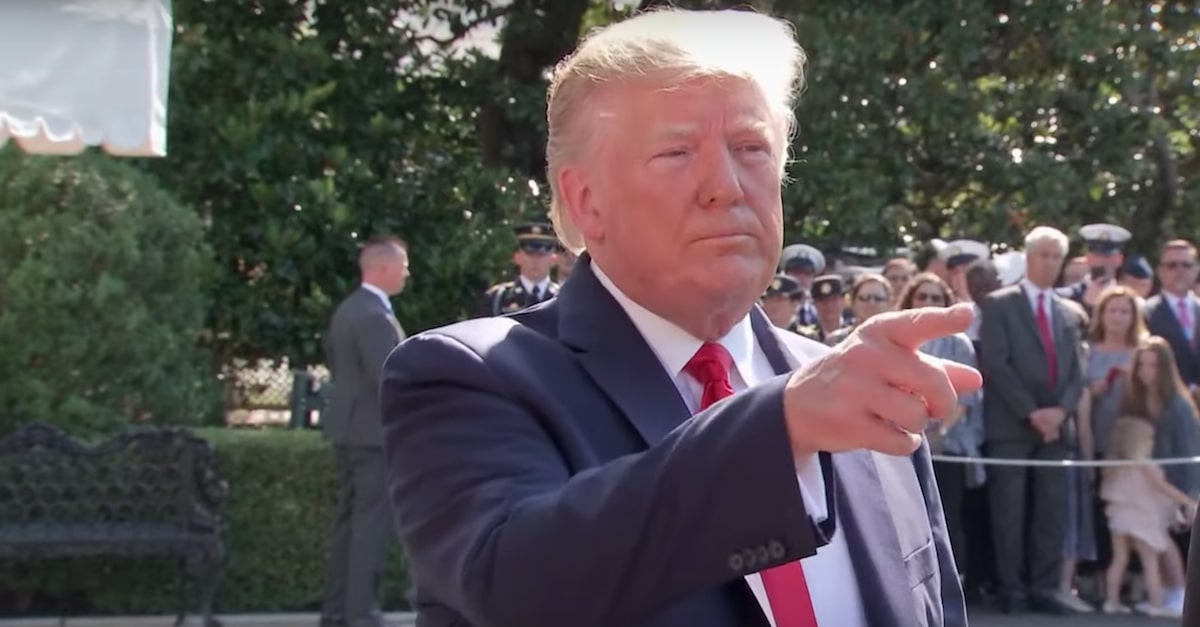
In voting not to call new witnesses last week, Republican Senators unsurprisingly all-but decided that President Donald Trump will not be removed from office, meaning that history will continue to show impeached presidents have only ever been acquitted in a Senate trial. While House Democrats and their constituents are clearly not happy about this result, a few GOP Senators did say President Trump did something wrong but not impeachable. Will Democrats try to use to make political hay out of this and attempt to put the Republican-led Senate on the spot?
The prospect of censuring the president (i.e., formally denouncing his actions) is starting to be talked about more and more. A few Republicans Senators have called President Trump’s conduct wrong/improper/not right/inappropriate/not something they would do but not impeachable (see: Lamar Alexander, Marco Rubio, Rob Portman, Joni Ernst). So, will Democrats consider trying to get these lawmakers and others on the Senate and historical record saying as much?
A former press secretary for Bill Clinton and at least one former Republican congressman argued on Monday that censure is the appropriate penalty for the president in lieu of conviction. Joe Lockhart and Charlie Dent write:
The underlying reasoning was that even with Trump’s bad behavior, the binary choice of acquittal versus removal made it impossible for Republicans to side with the Democrats.
But in those shifting rationales, the Republicans have raised a third option they may not have anticipated. The Senate on Thursday can and should move to censure the President and use the Republicans’ own public statements and floor speeches as the basis for the language condemning Trump’s behavior.
Democrats are, indeed, already looking forward to a censure resolution.
Such a vote would reveal, for all intents and purposes, who would and wouldn’t say the president’s call wasn’t perfect.
Is there a precedent for a president being censured by the Senate, you ask? The answer is yes, but it has only happened once in American history, and that was 186 years ago in the case of Andrew Jackson. You might see some similarities in the Senate’s telling of that historical event:
After the election, Jackson moved to withdraw federal deposits from the bank [of the United States] and, in doing so, set off a political firestorm. The bank’s charter gave the secretary of the treasury the power to move federal deposits out of the bank, but required him to report his reasons for such actions to Congress. Jackson instructed Treasury Secretary William J. Duane to remove the deposits but Duane refused. On September 23 Jackson dismissed Duane from his post and with a recess appointment named Attorney General Roger Taney as treasury secretary. Taney, who shared Jackson’s stance on the bank, carried out the orders to move federal deposits to a number of state banks and submitted his reasons to Congress in December.
When the new Congress convened in December 1833, Clay’s anti-administration coalition in the Senate held an eight-vote majority over Jackson’s fellow Democrats. Clay was determined to challenge Jackson on the bank.
Jackson had read a message to his cabinet in September explaining his decision regarding the federal deposits and later had it published in the Washington Globe, the mouthpiece of his administration. Clay’s first move was to introduce a resolution requesting a copy of that message, arguing that it ought to be submitted as an official document. When Jackson refused to provide it, Clay escalated the conflict.
On December 26, Clay introduced a two-part resolution. The first part stated that in firing Duane and installing Taney to remove the public deposits, Jackson had “assumed the exercise of a power over the Treasury of the United States not granted him by the Constitution and laws.” The second part, asserting Congress’s role in overseeing the handling of the nation’s deposits, stated that Taney’s explanation for the move was “unsatisfactory and insufficient.”
After a 10-week debate, the Senate voted 26 to 20 to adopt a revised resolution, which stated that “the President, in the late executive proceeding in relation to the public revenue, has assumed upon himself authority and power not conferred by the Constitution and laws, but in derogation of both,” effectively censuring the president. Jackson responded with a lengthy protest denying the validity of the Senate’s action. In another unprecedented move, the Senate responded by refusing to print the president’s message in its Journal.
[Image via YouTube screengrab]